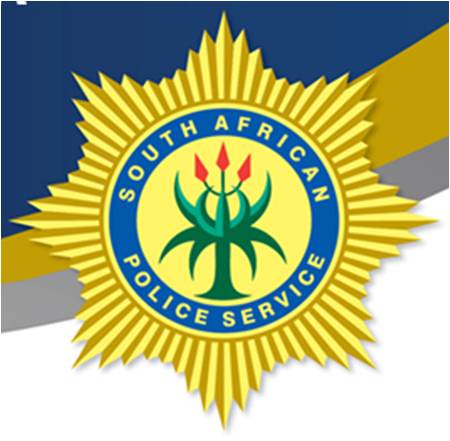The case of the alleged kidnapping and robbery of a Rhodes student in April 2018 has taken an unexpected turn, as the defence has raised questions about procedures used to identify the suspects, and the timing.
Two local men, Jamie de Jager (35) and Andre du Plessis (34), have pleaded not guilty to the charges of Kidnapping and Robbery with Aggravating Circumstances with respect to an incident on 11 April 2018. They are alleged to have kidnapped Rhodes student Ryan Morley, held him against his will and forced him to use drugs.
The accuseds’ attorney Katja Offerman told the court that although she empathised with Morley and agreed that what he had described must have been a frightening ordeal, her clients would deny their involvement. “Terrible though that would have been, these men will testify that they weren’t the men who did this to you,” Offerman said.
Morley in his evidence said he’d been walking from his African Street flat to the Rhodes University campus around 8.10pm on 11 April 2018 when he encountered De Jager on the corner of African and Somerset Street. De Jager had asked him if he wanted drugs.
When he refused, Morley said, De Jager told him he had a knife and that he must go with him. Morley said he didn’t think he could outrun the man and, having seem him on previous occasions, was aware that he was usually accompanied by a second man. Indeed, that second man, whom the student identified as Du Plessis, had later joined them. Morley was scared and accompanied them along African Street, towards Albany Road and to a house where they took out drugs and lit a pipe.
Then, according to Morley, they intimidated him into smoking the pipe. One of the men, Morley said, swung a sock with a fist-sized rock in it and, understanding this as a threat, he had reluctantly complied. “I was scared, so I didn’t refuse,” he said.
The men then demanded money. When he told them he didn’t have any, they instructed him to phone a parent or friend to send some.
“I didn’t have airtime,” he said. “So they took my phone and put my simcard into another device.”
Morley sent Please Call Me messages without response, while the threats continued, he said.
Later in the night, they told him to go to sleep and they would deal with the problem in the morning.
“Accused number one instructed me to get into the bed behind him. The other man was in the bed by the door.”
Morley then described the ordeal of waiting until they had fallen asleep before creeping out of bed and crawling out of the room.
He had climbed out of a window and, leaving behind all his belongings, ran barefoot through the night to the safety of the BP garage in African Street, where he was allowed to call a friend.
“I had no keys to my flat, so I ran to her place,” he said. The next morning he went to the police station and reported the incident.
Offerman questioned Morley extensively about the details of his encounter with De Jager and Du Plessis. In particular, she suggested he’d had several possible opportunities to escape from his alleged abductors, naming three busy public venues along the route, between Somerset Street and Milner Street, that would have been open that Wednesday night, with car guards, staff and members of the public available to approach for help.
Morley, who is 23, explained that he’d been terrified and didn’t think he could run fast enough to evade the knife De Jager had shown him.
“I was afraid, so my reactions weren’t optimum,” he said. “In that moment I was frozen with fear.”
Explaining why he’d been out and about so late at night, Morley said he’d been on his way to the university library to download research material on to a flash drive.
Morley said that he’d only reported the incident to the police the next day because he was exhausted and unable to think clearly because of the effects of the drugs he’d been forced to smoke.
The defence on Wednesday and Thursday asked questions about the sequence and methods of identifying the two accused men.
Morley had identified De Jager from among a set of photographs. In court on Thursday 28 February, Offerman emphasised her reluctance to refer to discredited racial descriptions, but argued that given Morley’s description of the suspects as “coloured” in his initial statement, the fact that only one of the photographs supplied was of a lighter skinned man had limited his choices.
Captain Andrew Bovey, whose job it had been to conduct the identification process with photos provided to him, countered in his testimony that many men who might refer to themselves as African were light-skinned, and many so-called Coloured people had darker skin. “There was no mention of complexion,” he said.
Offerman questioned why no formal identification parade had been conducted.
“The men were arrested, accused and known long before 28 May [when the photographic identification was done],” Offerman said. “Why was no formal identification parade conducted?”
Two additional counts in the matter – Kidnapping, and Robbery with Aggravating Circumstances – were withdrawn. A second student had originally been a complainant in alleged incidents in Calvert Street and at Pepper Grove mall on 9 April 2018 .
Initial appearances last year in the Magistrate’s Court were held in camera at the request of one of the students. The case, now in the Regional Court, is open to the public.
De Jager and Du Plessis are still to testify. The matter will continue in the Regional Court on Monday 11 March.
Rhodes University Spokesperson Veliswa Mhlope said, “Students are encouraged to access the counselling and support services offered at the Rhodes Counselling Centre.”



